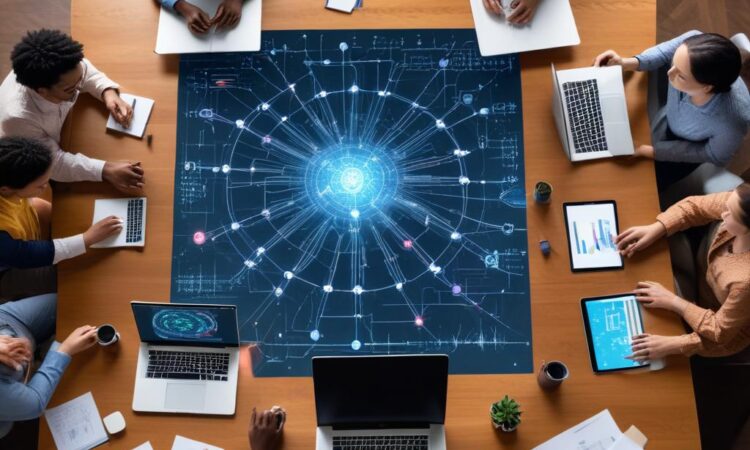Growing Concerns over AI Bias and Fairness
Hey everyone, let’s talk about something super important: AI bias. It’s not just some sci-fi movie plot anymore; it’s a real-world issue that’s getting a lot of attention, and rightly so. We’re seeing more and more how AI systems can reflect – and even amplify – existing societal biases. Think about it: if an AI is trained on data that’s skewed, say, showing men in leadership roles more often than women, it might learn to favor men for those roles even if the data is only partially true or representative.
This isn’t just about fairness; it’s about the potential for real harm. Biased AI can lead to unfair loan applications, inaccurate medical diagnoses, and even discriminatory hiring practices. It’s not a matter of “fixing” the AI later; building the algorithms with fairness in mind is crucial from the very beginning. The problem is, figuring out how to do that is proving to be super tricky.
Why is AI Bias Such a Big Deal?
Well, for starters, AI is becoming increasingly powerful and influential in our lives. We’re using it for everything from recommending movies to making critical decisions about healthcare and criminal justice. If these systems are biased, the consequences can be huge and far-reaching. We’re talking about impacting people’s lives in really significant ways, from affecting their job prospects to limiting access to essential services.
The thing is, bias isn’t always obvious. It can be subtle and sneaky, hiding within the data used to train these systems. Sometimes it’s unintentional, a result of incomplete or poorly curated data sets. Other times, it can be more deliberate, reflecting existing prejudiced views that are baked into the algorithms.
What’s Being Done About It?
Thankfully, a lot of smart people are working hard to tackle this problem. Researchers are developing new techniques to detect and mitigate bias in AI systems. This includes things like algorithmic auditing, where experts examine AI systems to identify potential sources of bias, and developing new algorithms designed to be fairer and more equitable.
Regulators are also getting involved, setting guidelines and standards to ensure AI systems are used responsibly and ethically. There’s growing pressure on companies to be transparent about how their AI systems are designed and deployed, and to ensure they’re not causing harm. The public is becoming more aware of this issue too, demanding accountability and pushing for change.
The Challenge of Fairness
One of the biggest challenges is defining what “fairness” actually means in the context of AI. There’s no single definition that works for every situation. What constitutes a fair outcome in one context might be considered unfair in another. This makes it difficult to develop universally applicable solutions. There’s a lot of ongoing debate and research in this area, exploring different approaches and ethical frameworks.
Furthermore, fixing bias isn’t just a technical problem; it’s also a societal one. AI systems reflect the biases present in the data they’re trained on, and that data reflects our society’s biases. Addressing AI bias requires us to confront and tackle the root causes of inequality and discrimination in our own systems and institutions.
Looking Ahead
The fight for fairer AI is a long and complex one, but it’s a crucial fight to have. It’s not just about making AI systems work better; it’s about building a more just and equitable future. As AI becomes more integrated into our lives, it’s vital that we prioritize fairness and transparency. This means demanding accountability from companies, supporting research into bias mitigation, and engaging in thoughtful public discussions about the ethical implications of this powerful technology.
It’s going to take a collaborative effort from researchers, policymakers, businesses, and the public to create AI systems that are truly fair and beneficial for everyone. We’re still in the early stages, but the conversation is starting, and the work to create a better, more equitable future powered by AI is well underway.
This is a complex issue, and there are many different perspectives on how to best address it. But one thing’s for sure: we need to keep talking about it, keep researching it, and keep working towards a solution. The future of AI, and indeed our future, depends on it.

